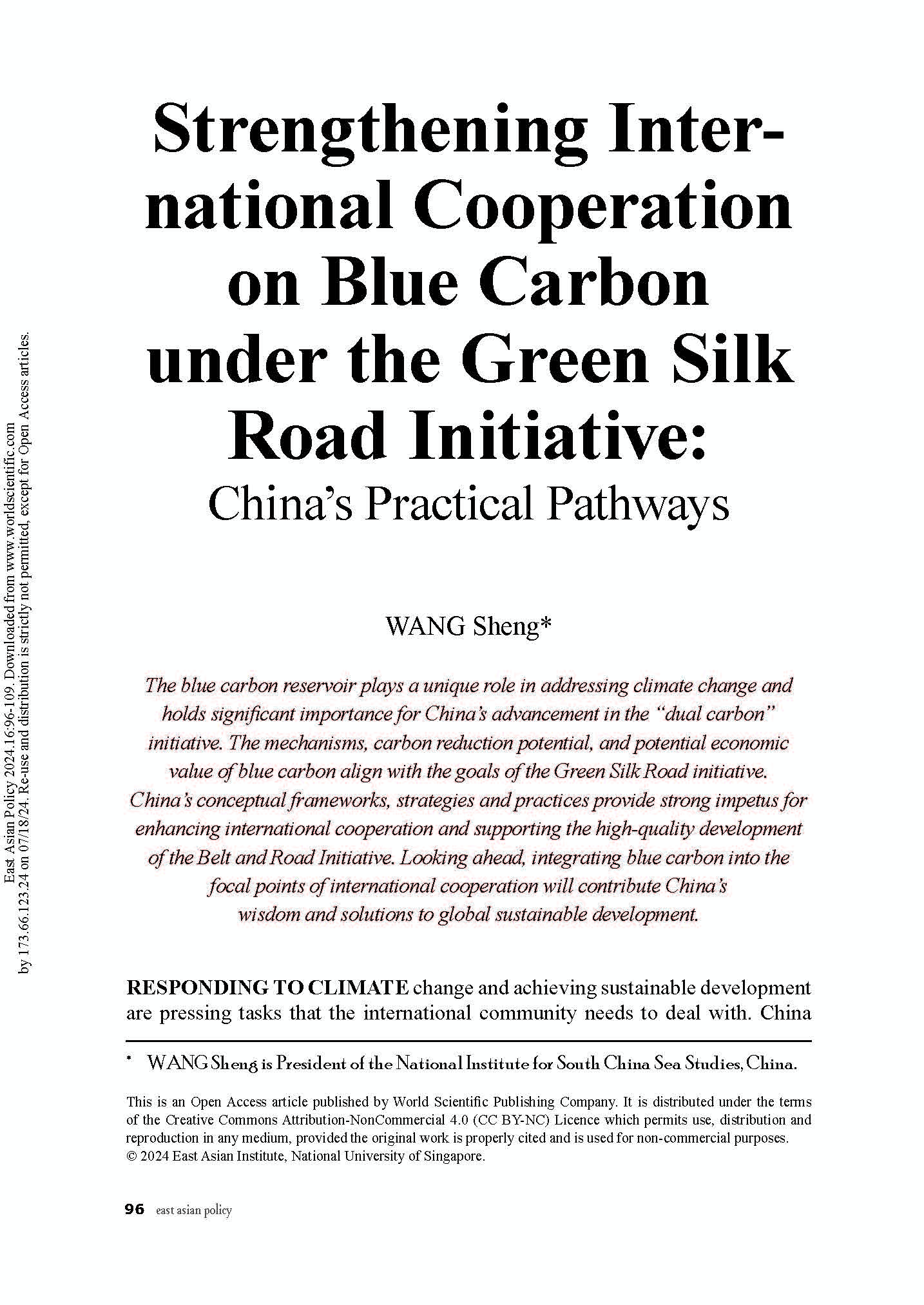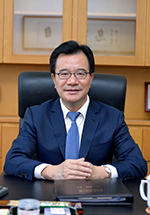Home / Books & Journal Articles / Journal Article / Strengthening International Cooperation on Blue Carbon under the Green Silk Road Initiative: China’s Practical Pathways


President, National Institute for the South China Sea Studies
The blue carbon reservoir plays a unique role in addressing climate change and holds significant importance for China’s advancement in the “dual carbon” initiative. The mechanisms, carbon reduction potential, and potential economic value of blue carbon align with the goals of the Green Silk Road initiative. China’s conceptual frameworks, strategies and practices provide strong impetus for enhancing international cooperation and supporting the high-quality development of the Belt and Road Initiative. Looking ahead, integrating blue carbon into the focal points of international cooperation will contribute China’s wisdom and solutions to global sustainable development.
Journal: East Asian Policy
Publication Details: (2024) Vol. 16, No. 02, pp. 96-109; Open Access
https://doi.org/10.1142/S1793930524000157

External Partner, ICAS Blue Carbon & Climate Change Program
President, National Institute for the South China Sea Studies
Mr. WANG Sheng is a graduate student supervisor, a specially-appointed professor, and a senior Chinese foreign affairs professional. He is currently President of the National Institute for South China Sea Studies (NISCS). A graduate of Victoria University of Wellington, New Zealand with a Master’s degree in Applied Linguistics in English, he has also studied at the Harvard Kennedy School of Government and Duke University in the United States, and Oxford University in the United Kingdom.
For over 20 years, Mr. Wang’s career has been devoted to foreign affairs and South China Sea research, working for China’s rights and interests in the South China Sea and for the overall stability of that sea, promoting exchange and cooperation with the countries and regions surrounding it. He has helped Hainan to establish 65 sisterhood relationships with regions and cities overseas, including nine with cities in countries surrounding the South China Sea, and contributed to more than 50 international cooperation projects in Hainan. He has immersed himself in a variety of research fields including international relations and regional security strategy, China’s rights and interests in the South China Sea, island development, and the Hainan Free Trade Port.
Author of over one hundred academic papers and a dozen volumes, his publications include the Annual Report on Global Islands, Practical Chinese-English Handbook for Translation, and the book series Commemorating the 20th Anniversary of Hainan’s Engagement in the Boao Forum for Asia. In recent years he has also delivered over 40 well-received speeches and presentations for audboth the public and private sectors, including to the Boao Forum for Asia, the China Reform and Development Forum, the Foreign Affairs Offices in Shanghai, Yunnan and Guizhou, and several universities and institutes. More specifically, Mr. Wang has committed to serving and fully leveraging the Boao Forum for Asia, making considerable contributions to the Forum’s inception, development, and subsequent launch.

The Institute for China-America Studies is an independent nonprofit, nonpartisan research organization dedicated to strengthening the understanding of U.S.-China relations through expert analysis and practical policy solutions.
1919 M St. NW Suite 310,
Washington, DC 20036
icas@chinaus-icas.org
(202) 968-0595
© 2025 INSTITUTE FOR CHINA-AMERICA STUDIES. ALL RIGHTS RESERVED.
How Hybrid Thinking Can Bridge America’s Budget and Climate Goals